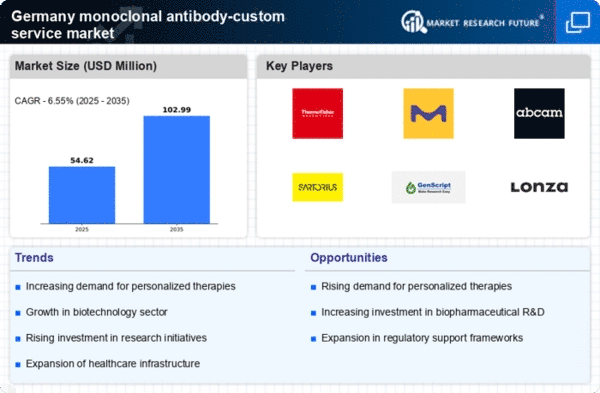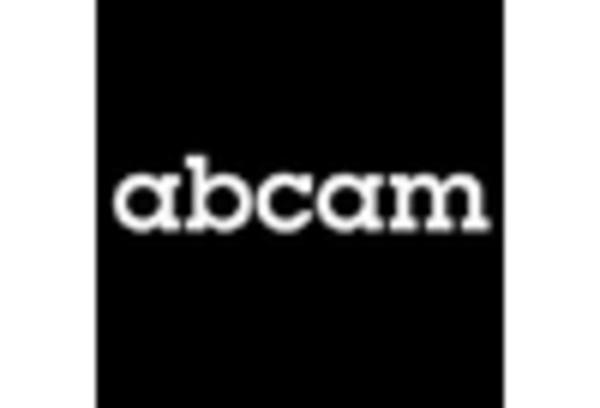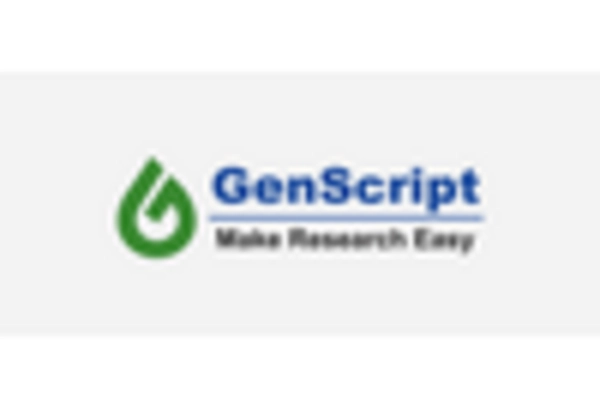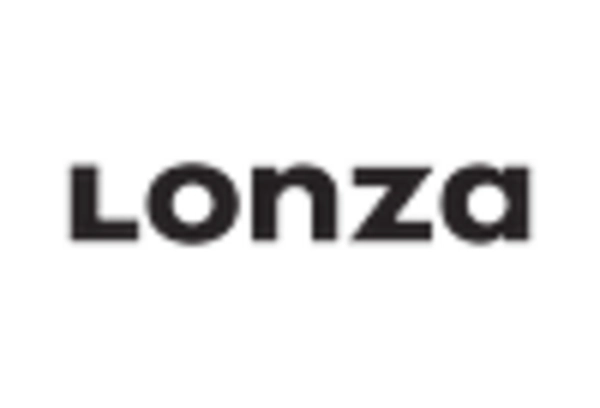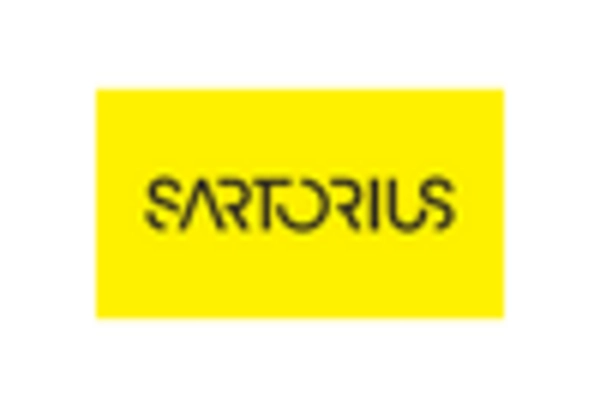Supportive Government Policies
The monoclonal antibody-custom-service market benefits from supportive government policies aimed at fostering innovation and research in the biopharmaceutical sector. The German government has implemented various initiatives to promote the development of advanced therapies, including monoclonal antibodies. These policies often include funding opportunities, tax incentives, and streamlined regulatory processes that facilitate the entry of new products into the market. In 2025, government funding for biopharmaceutical research is expected to exceed €1 billion, reflecting a strong commitment to enhancing healthcare outcomes. Such supportive measures are likely to encourage more companies to invest in monoclonal antibody development, thereby expanding the custom service offerings available in the market. This environment of encouragement and support is crucial for the sustained growth of the monoclonal antibody-custom-service market.
Rising Prevalence of Chronic Diseases
The monoclonal antibody-custom-service market is significantly influenced by the increasing prevalence of chronic diseases in Germany. Conditions such as cancer, diabetes, and autoimmune disorders are on the rise, necessitating the development of targeted therapies. According to recent health statistics, nearly 30% of the German population is affected by chronic diseases, creating a substantial demand for innovative treatment options. Monoclonal antibodies have emerged as a vital component in the therapeutic arsenal against these conditions, offering specificity and reduced side effects compared to traditional treatments. This growing patient population is likely to drive the demand for customized monoclonal antibody services, as healthcare providers seek tailored solutions to meet individual patient needs. Consequently, the monoclonal antibody-custom-service market is poised for growth as it adapts to the evolving landscape of chronic disease management.
Growing Focus on Research and Development
The monoclonal antibody-custom-service market is witnessing a growing focus on research and development (R&D) activities within Germany. Pharmaceutical companies and research institutions are increasingly prioritizing R&D to discover and develop novel monoclonal antibodies for various therapeutic applications. In 2025, R&D spending in the biopharmaceutical sector is projected to account for approximately 20% of total industry revenue, underscoring the importance of innovation in driving market growth. This emphasis on R&D is not only aimed at improving existing therapies but also at exploring new indications for monoclonal antibodies. As a result, the monoclonal antibody-custom-service market is likely to expand, with more customized solutions being developed to meet the specific needs of patients and healthcare providers. This trend indicates a dynamic and evolving landscape, where continuous innovation is essential for maintaining competitiveness.
Increasing Investment in Biopharmaceuticals
The monoclonal antibody-custom-service market in Germany is experiencing a surge in investment from both public and private sectors. This influx of capital is primarily directed towards research and development initiatives aimed at enhancing therapeutic efficacy and safety. In 2025, the biopharmaceutical sector in Germany is projected to reach a valuation of approximately €50 billion, with monoclonal antibodies constituting a significant portion of this market. The growing recognition of the potential of monoclonal antibodies in treating various diseases, including cancer and autoimmune disorders, is driving this investment trend. Furthermore, collaborations between academic institutions and industry players are fostering innovation, thereby propelling the monoclonal antibody-custom-service market forward. This trend indicates a robust commitment to advancing biopharmaceutical capabilities, which is likely to yield substantial benefits for patients and healthcare systems alike.
Technological Advancements in Antibody Production
Technological innovations in antibody production are reshaping the monoclonal antibody-custom-service market in Germany. Recent advancements in recombinant DNA technology and hybridoma techniques have enhanced the efficiency and specificity of monoclonal antibody development. For instance, the introduction of high-throughput screening methods has accelerated the identification of suitable candidates for therapeutic use. Additionally, the integration of artificial intelligence in the design and optimization of antibodies is streamlining the development process. As a result, the cost of producing monoclonal antibodies is expected to decrease, making them more accessible to a broader range of healthcare providers. This technological evolution not only supports the growth of the monoclonal antibody-custom-service market but also encourages the exploration of novel therapeutic applications, thereby expanding the market's potential.


